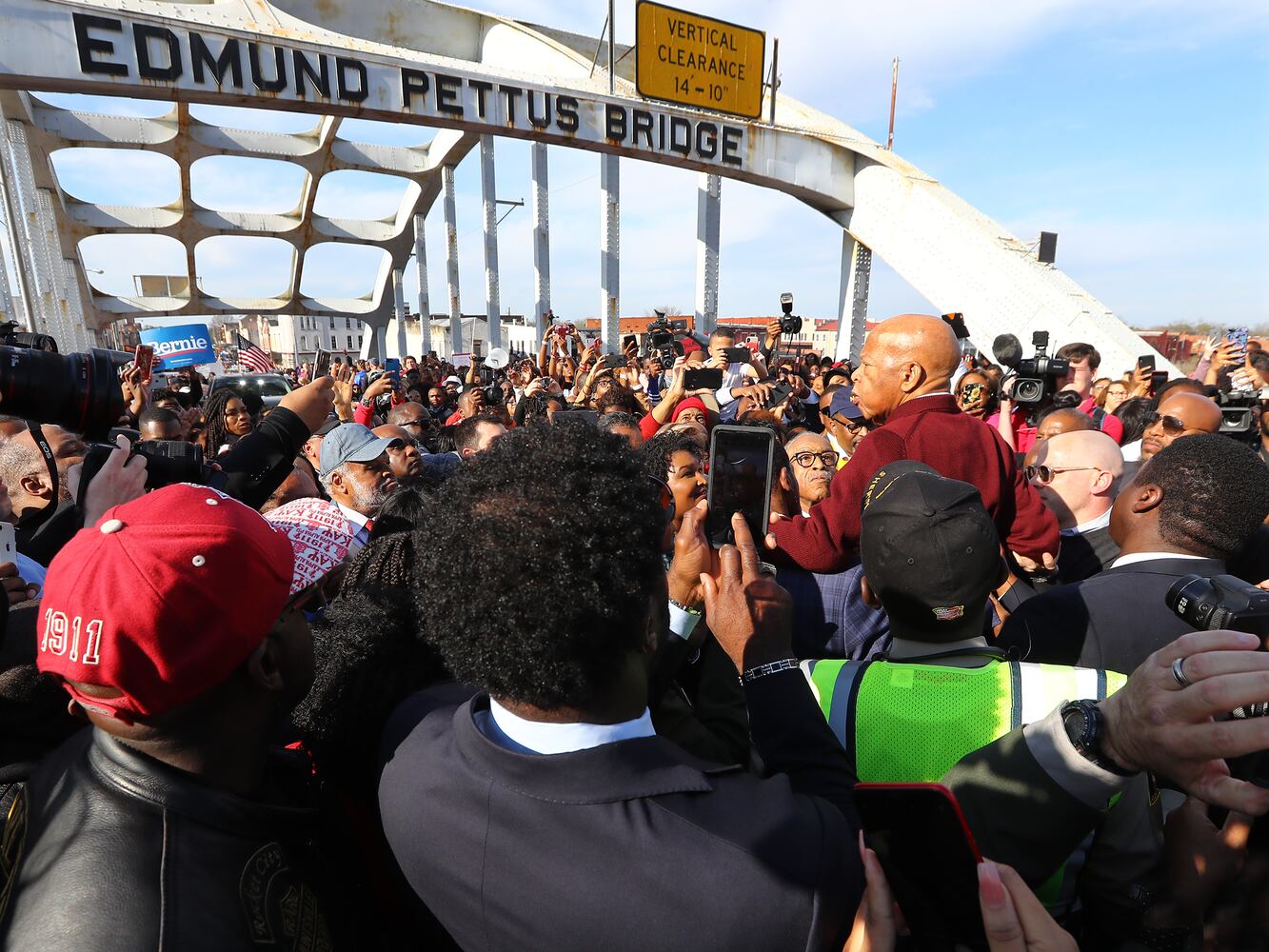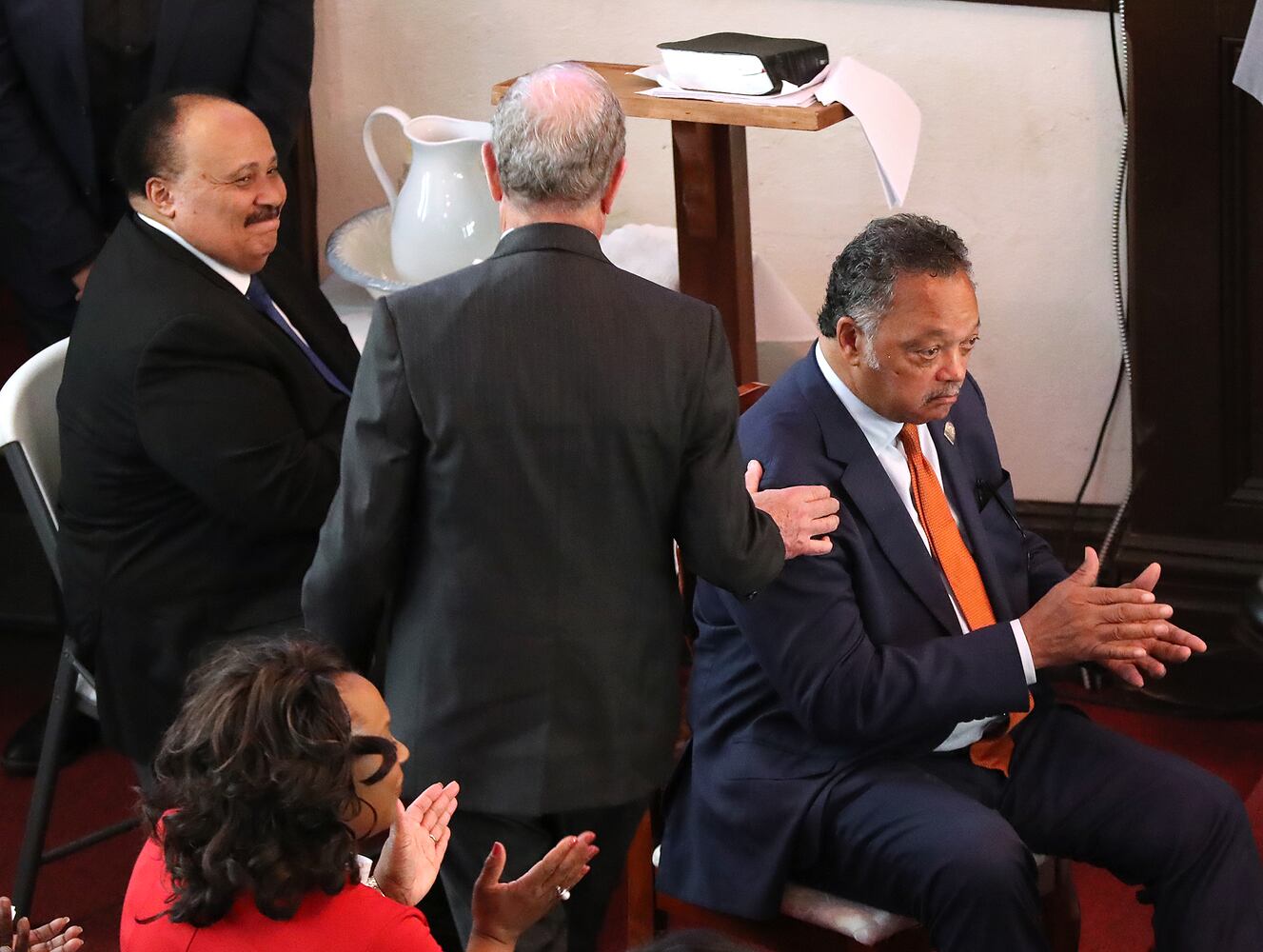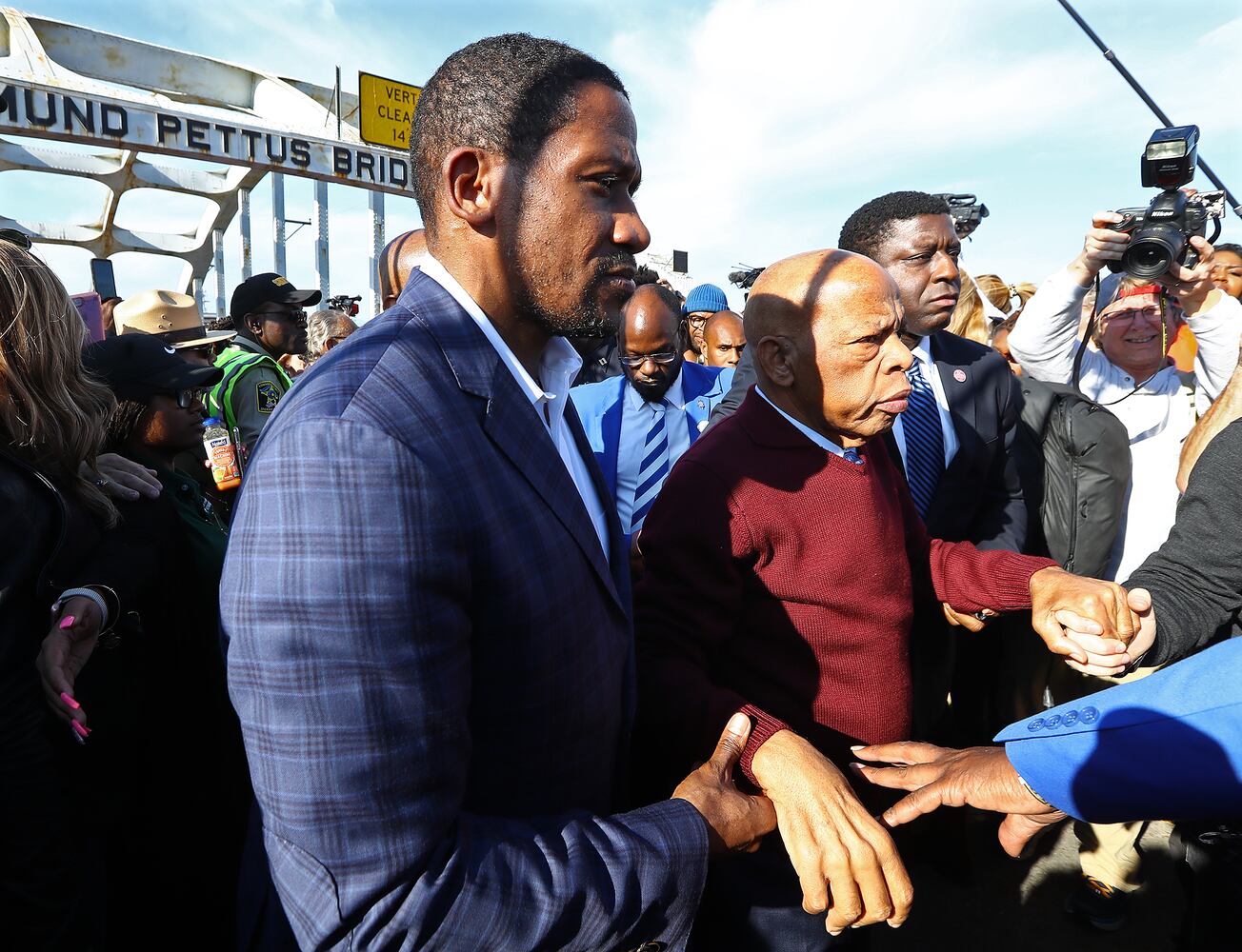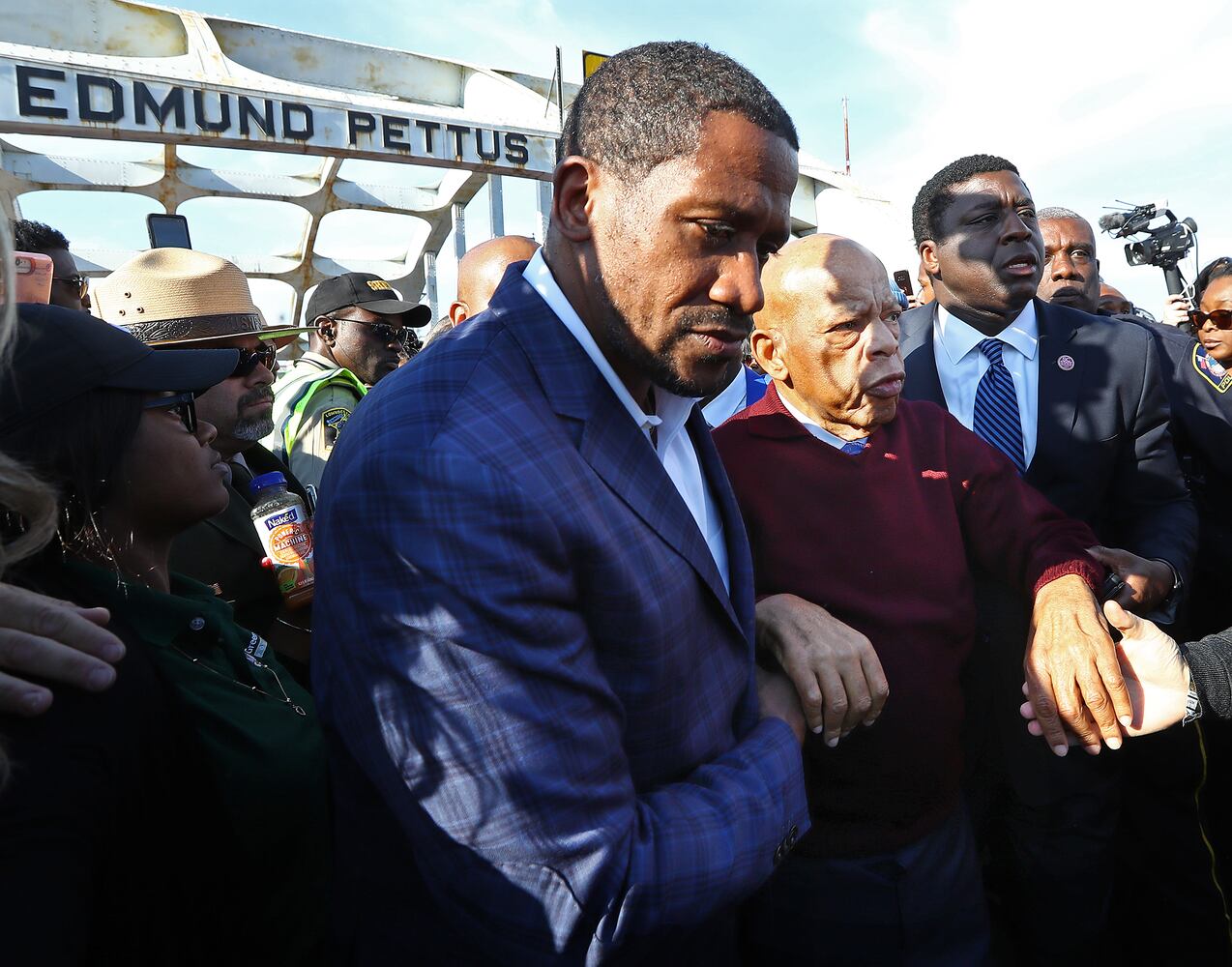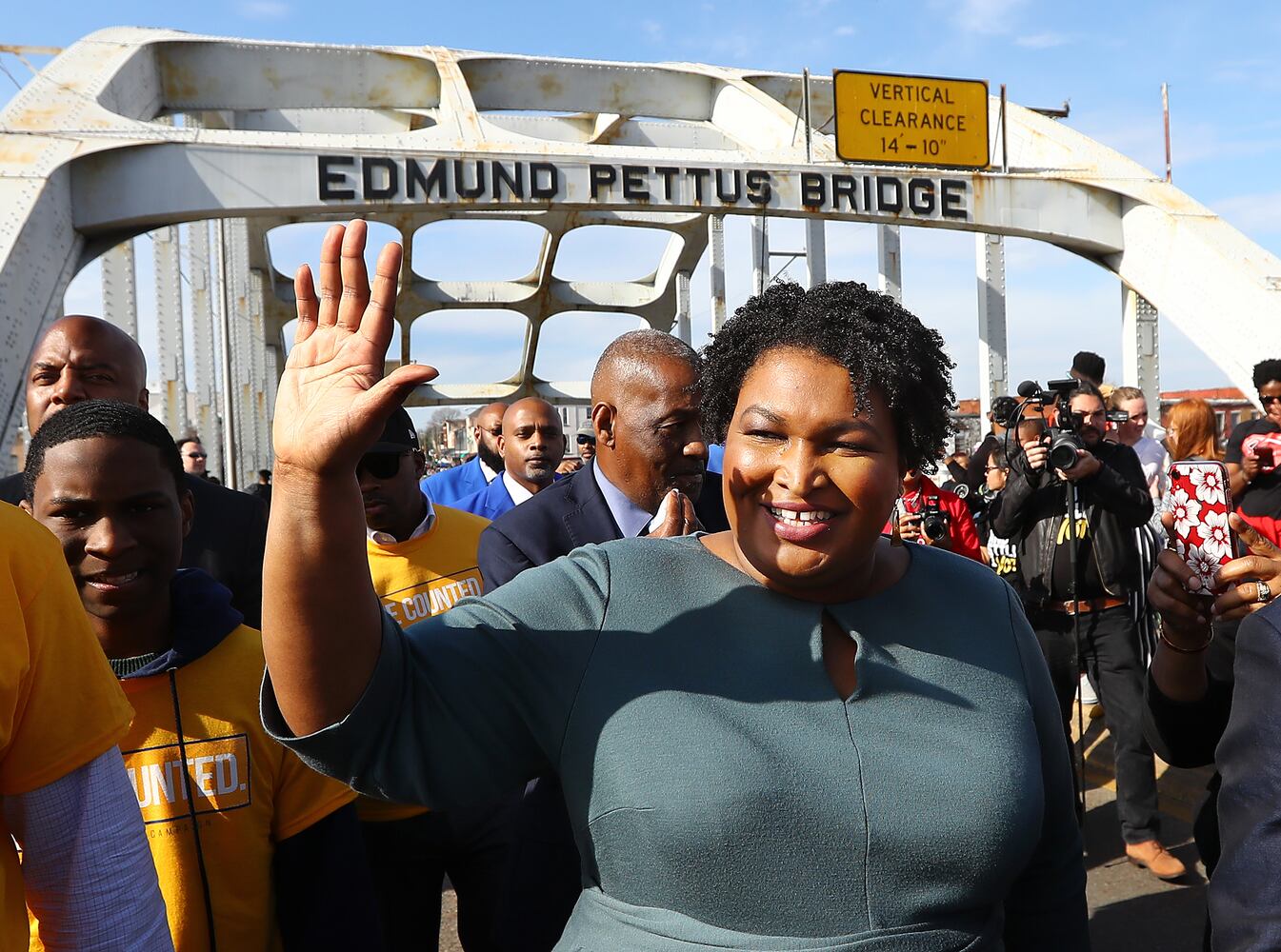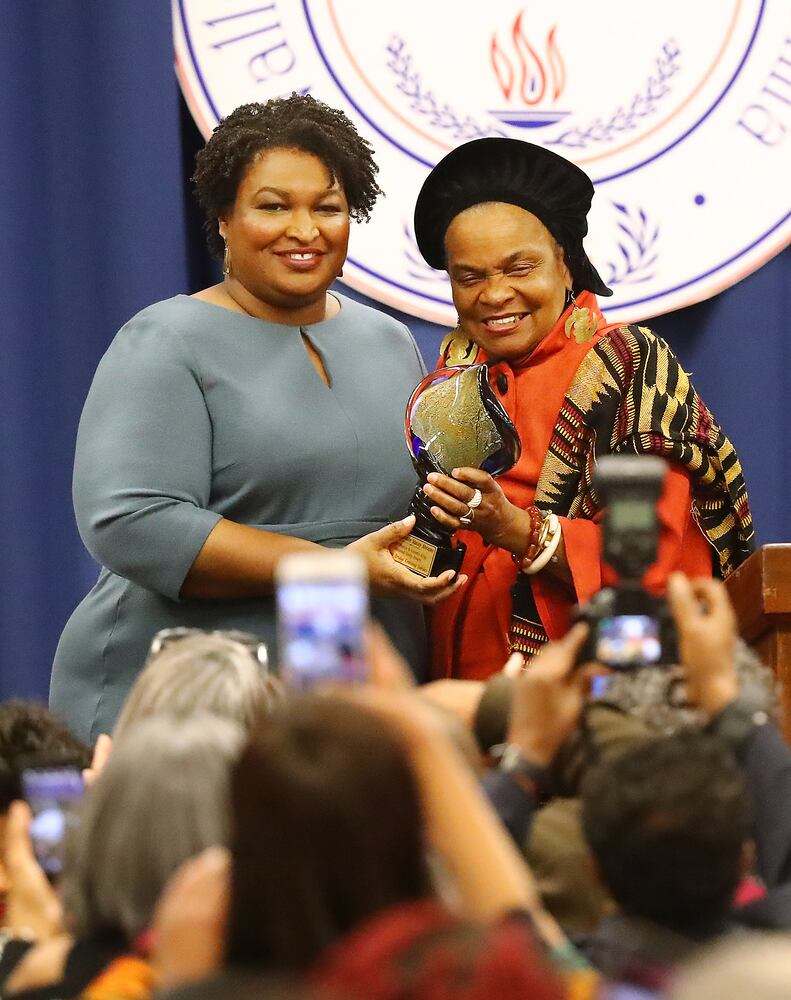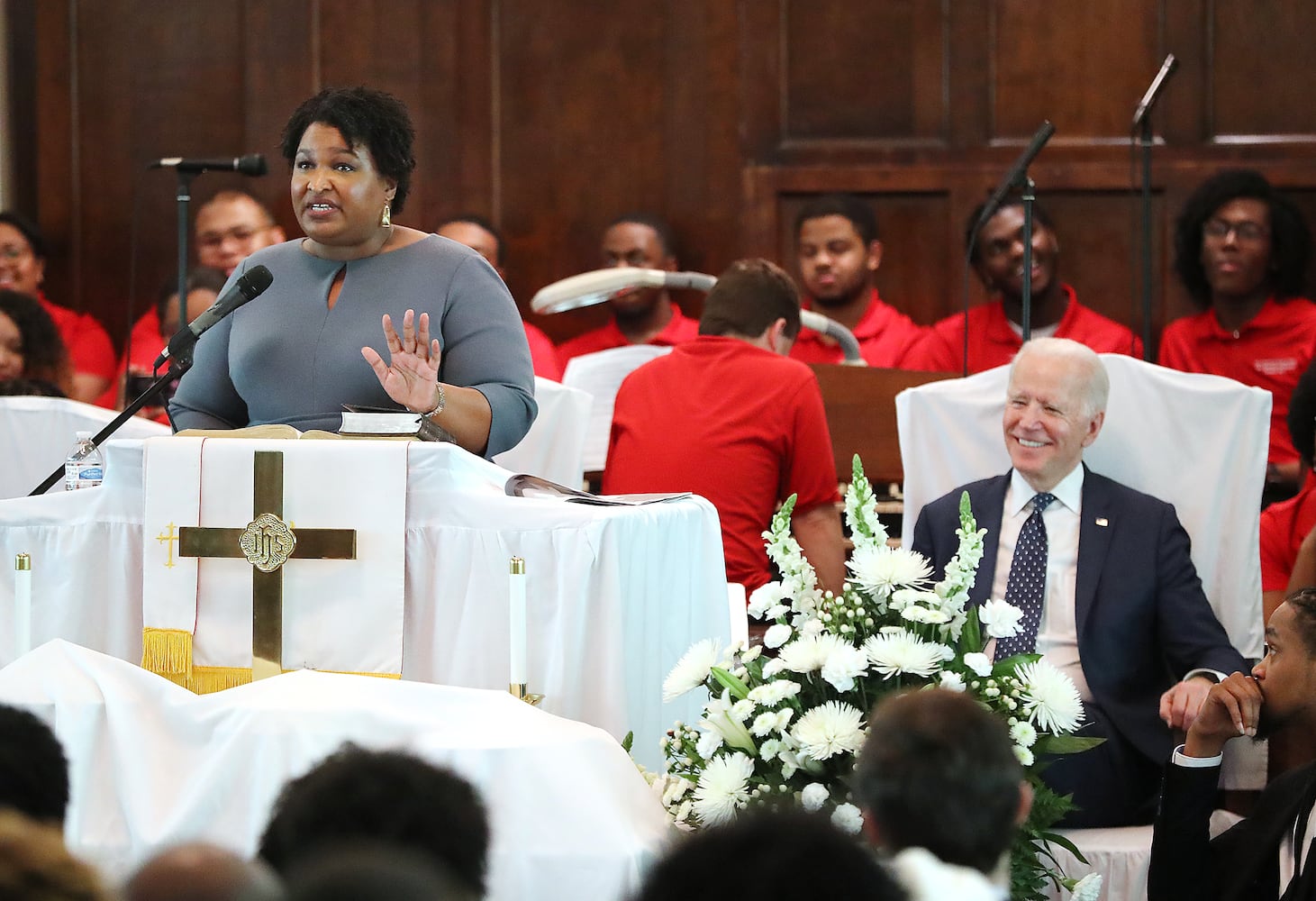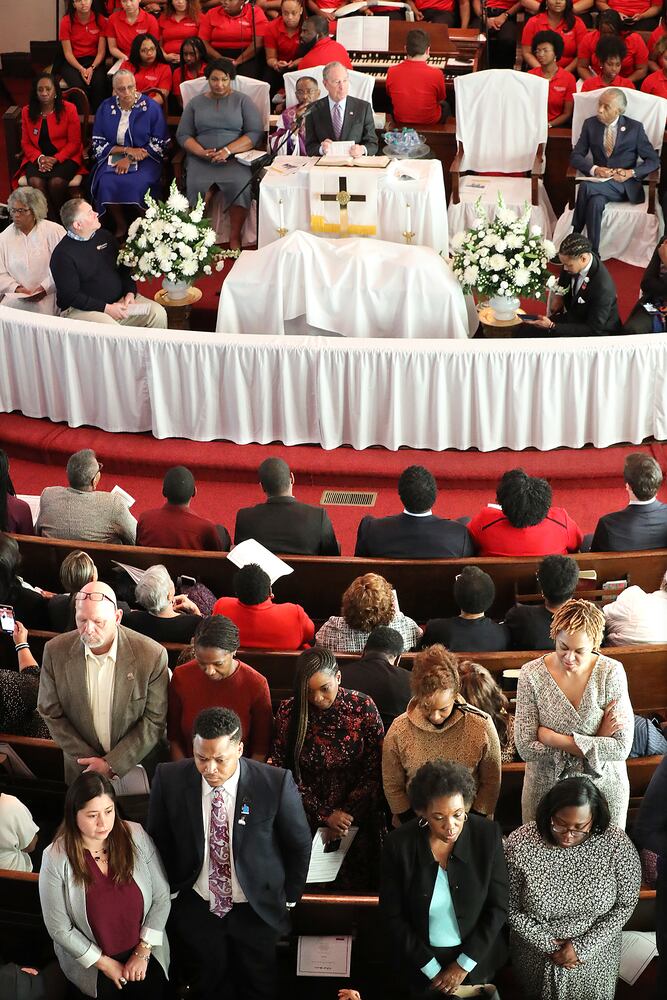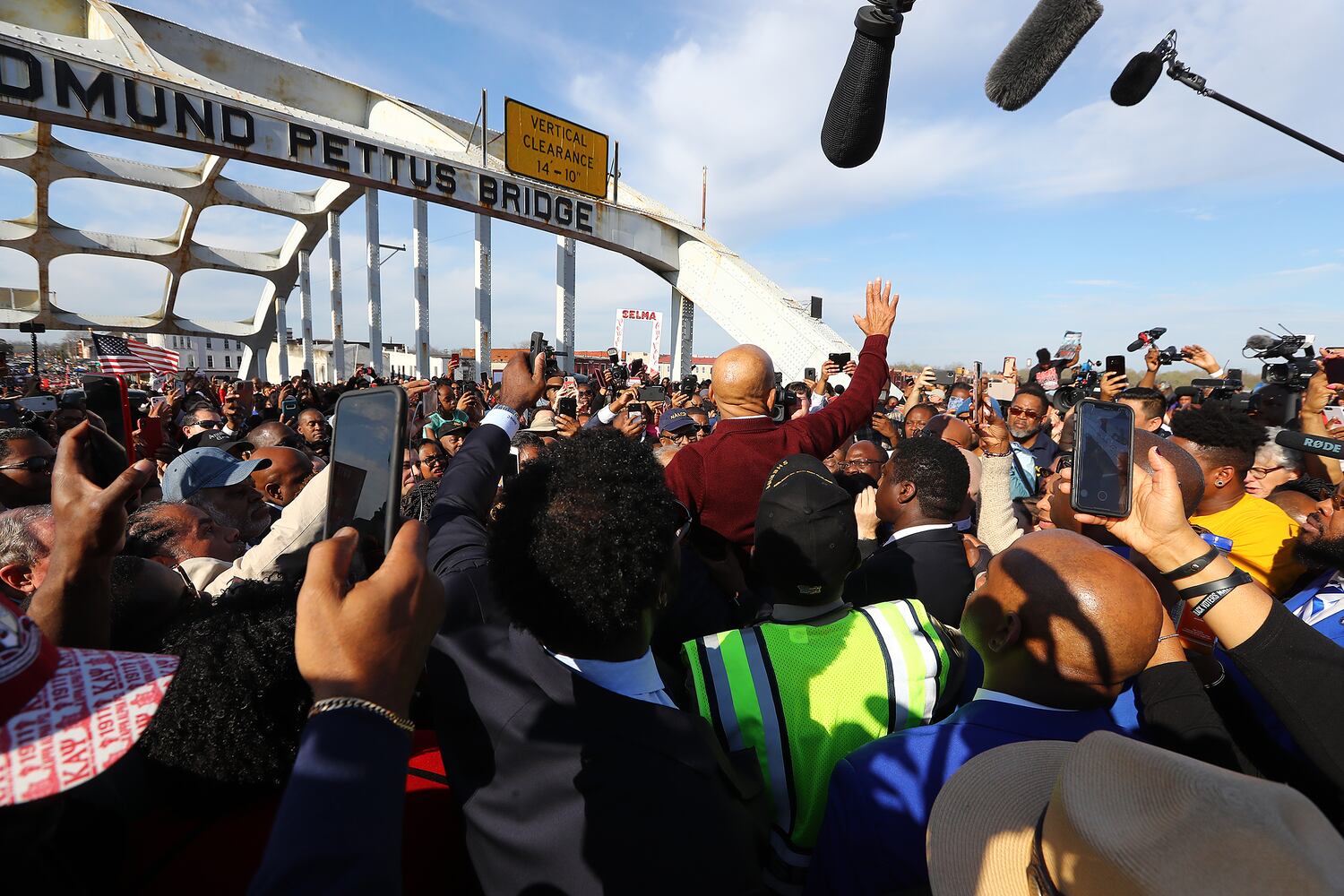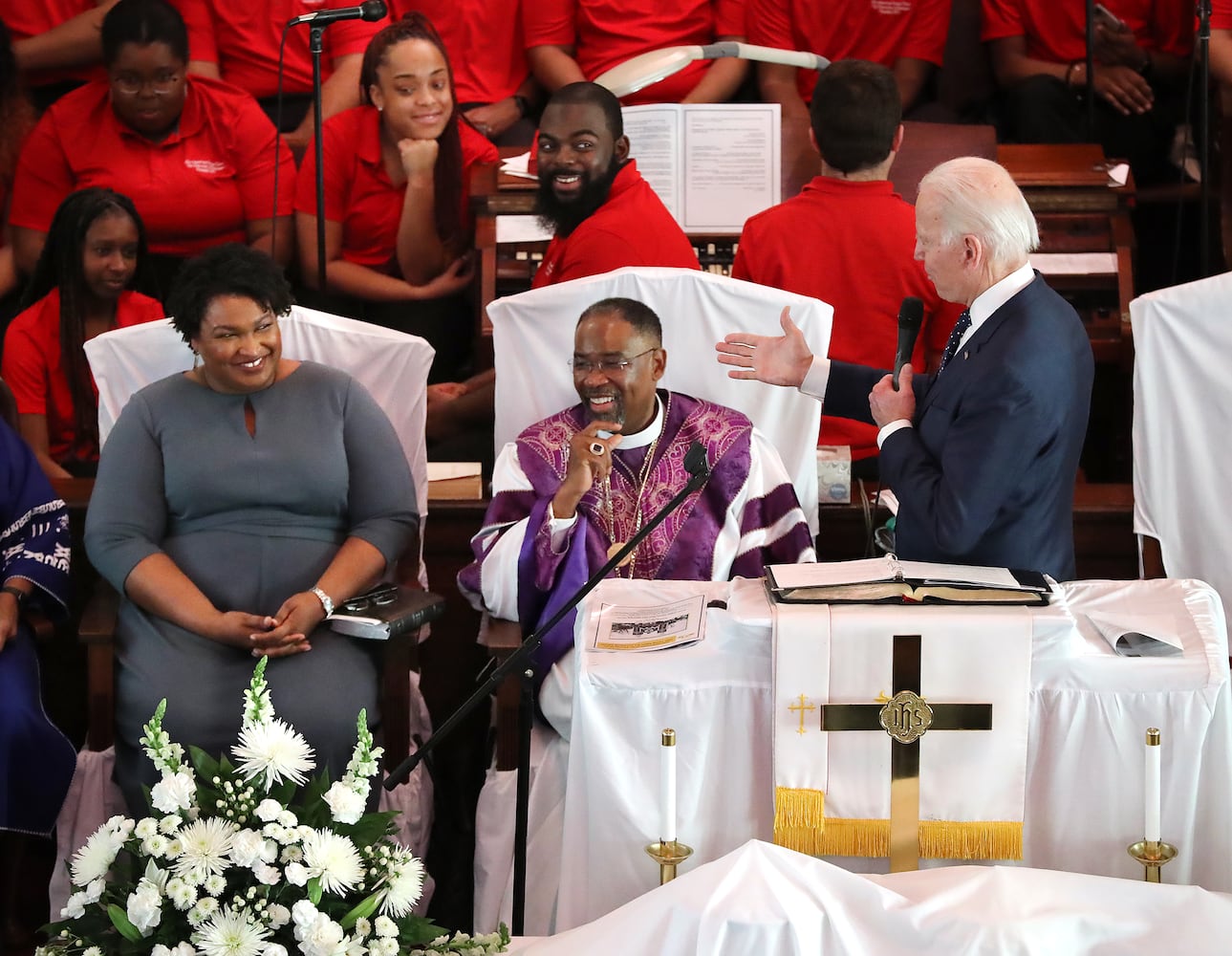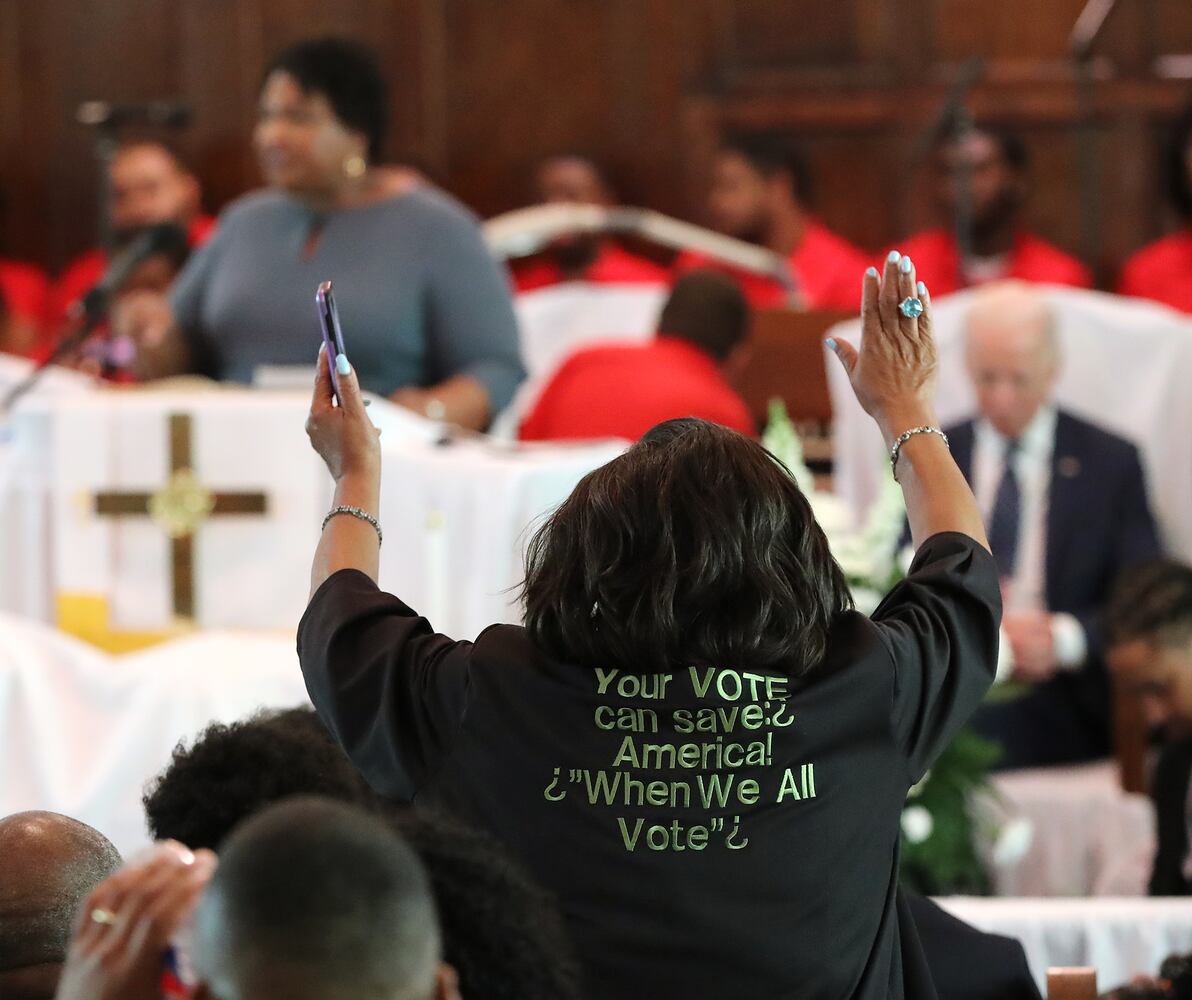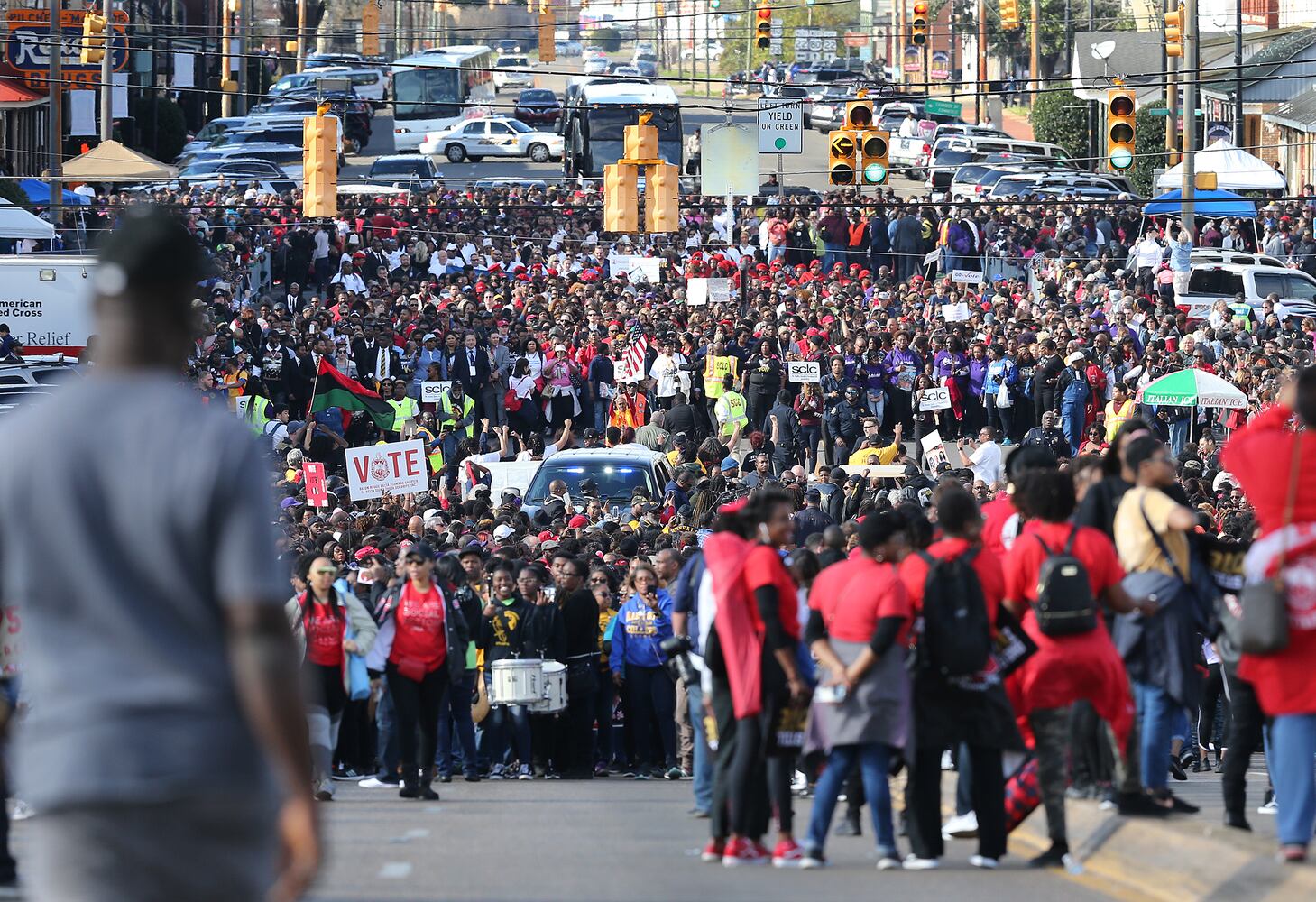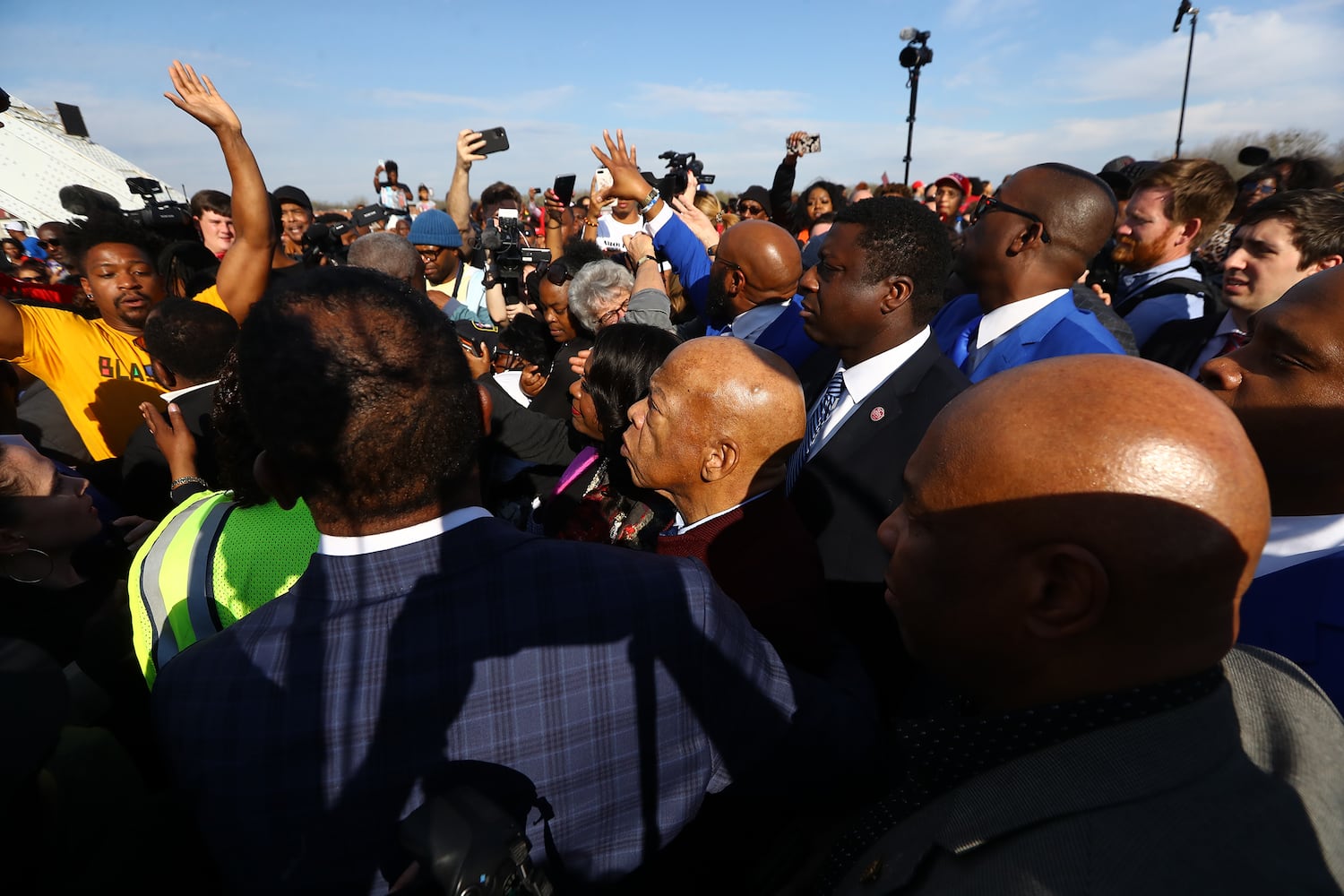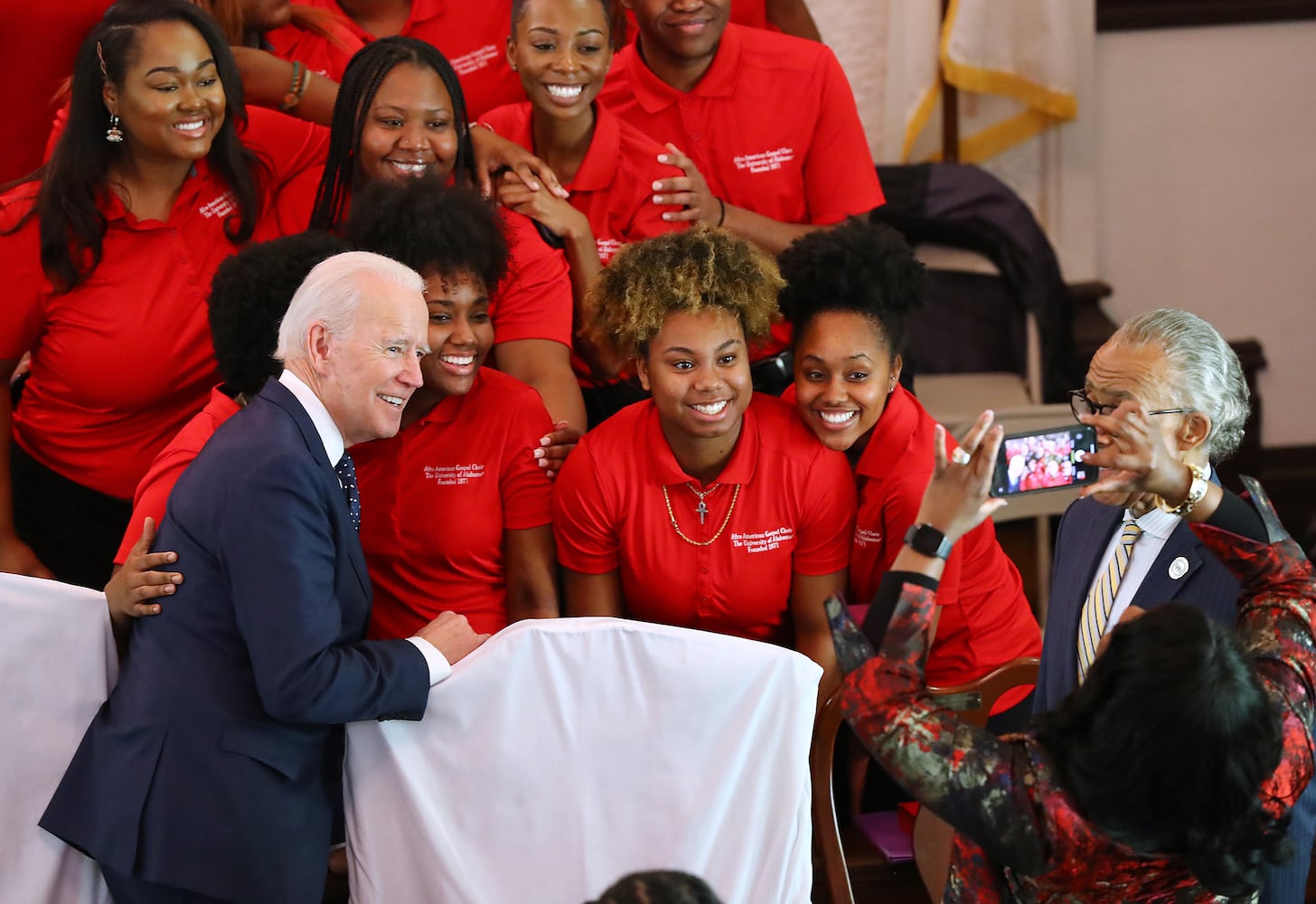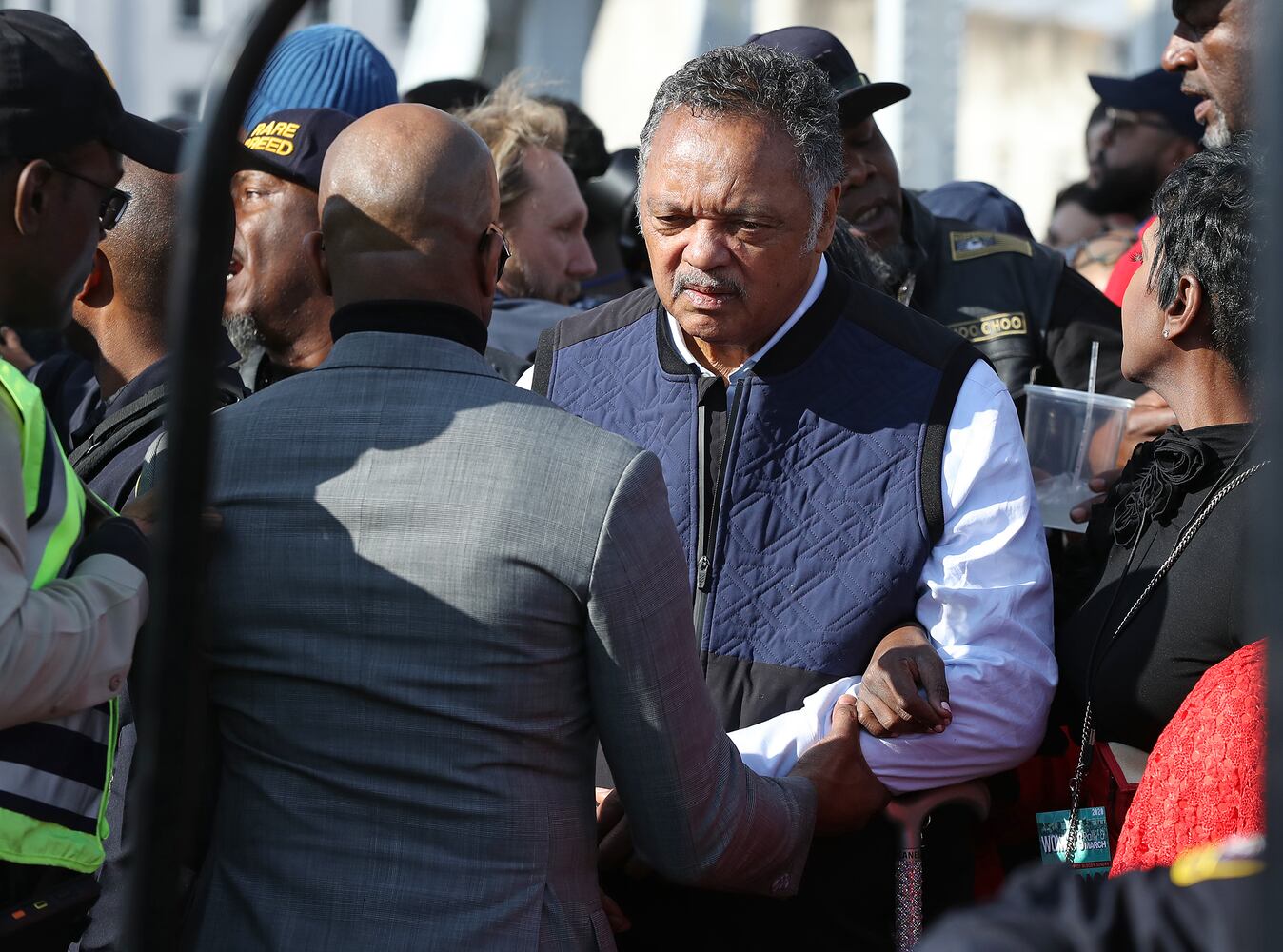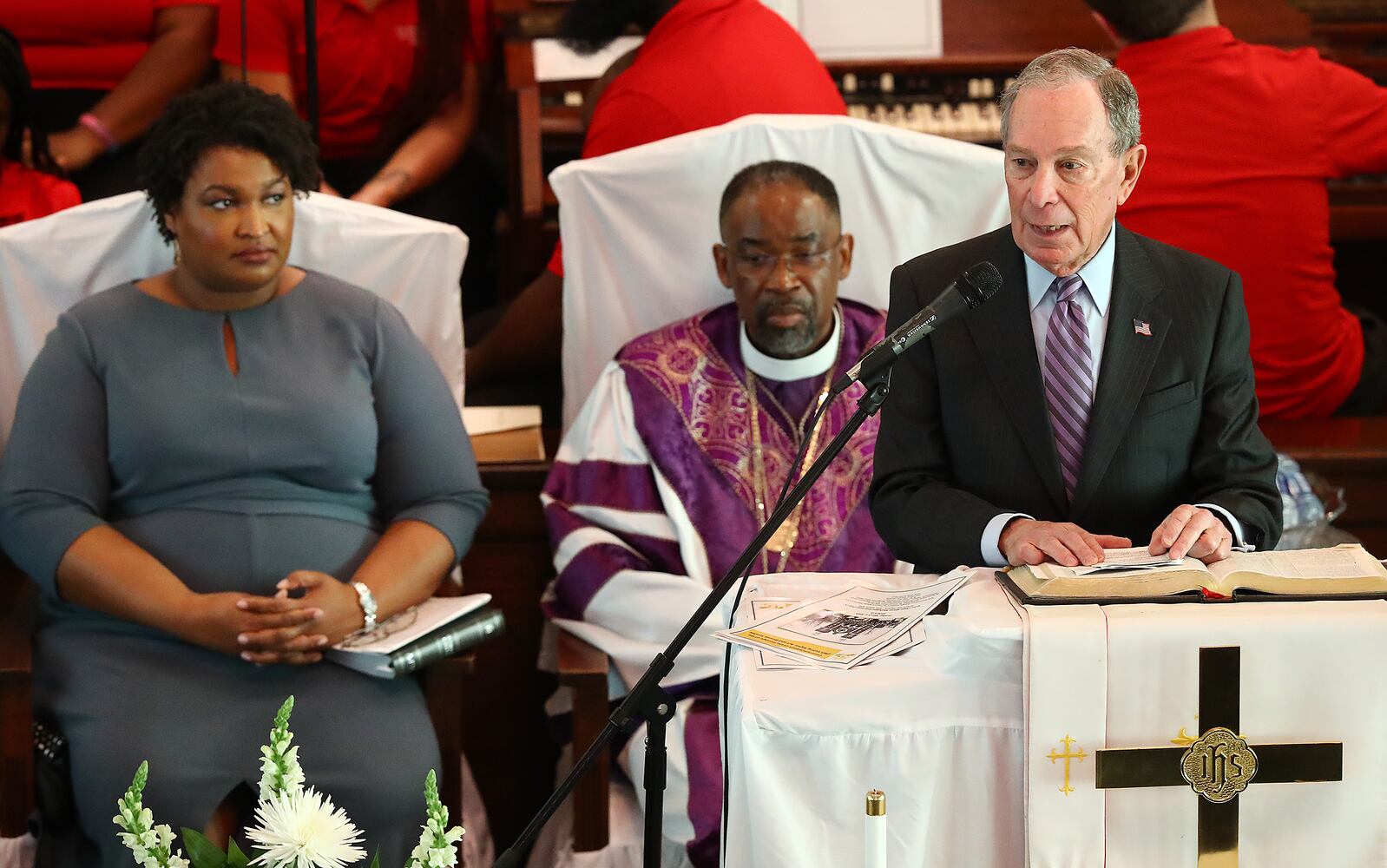Hoisted on the shoulders of two men, U.S. Rep. John Lewis addressed the throng gathered at the top of the Edmund Pettus Bridge on Sunday afternoon.
People of all ages craned their necks for a glimpse of one of the last living civil rights leaders, who 55 years ago led the march here that left him unconscious and bloodied but also sparked passage of the Voting Rights Act.
Lewis — in treatment for advanced pancreatic cancer — was not expected to attend. But he said he decided to make the surprise appearance, in part, to stress the importance of voting in this year's presidential election.
“We cannot give up now, we cannot give in,” Lewis told the cheering crowd. “We must keep the faith. Keep the eyes on the prize. We must go out and vote like we never, ever voted before.”
The annual commemoration of Bloody Sunday has always had a dual focus: honoring Lewis and the others who marched for voting rights on March 7, 1965, and highlighting issues that continue to face African Americans in present day.
Beverly E. Smith, the Marietta-based national president of Delta Sigma Theta Sorority Inc., said she felt honored to walk across the bridge alongside other organizations focused on the common goal of improving access and opportunities for minorities. She participated in "Salute to Selma" events organized by a coalition of women's organizations before locking arms with other presidents of African-American fraternities and sororities to cross the bridge.
The large crowds made marching across the bridge as a group difficult, Smith said, but they powered through to honor the civil rights activists who sacrificed much more.
“We got this far, just like they did 55 years ago,” she said. “We’re not going to stop now just because of the crowd and because it’s not convenient for us to cross across.”
Many of the leading candidates also made the trip to Selma on Sunday.
Alabama is among 14 states holding primaries on Tuesday.
Vice President Joe Biden, fresh off his win in South Carolina's primary on Saturday, received a standing ovation during remarks at the historic Brown A.M.E. Church.
Many of the people who marched across the bridge 55 years ago had attended services at the church. It was reported that Lewis’s unconscious body — he had suffered a head injury — was brought back to Brown for medical attention after law enforcement brutally attacked the marchers after they made it across the bridge.
Biden reminded the crowd that he had traveled to Selma before and re-enacted the walk alongside Lewis. He said white supremacy continues to be an evil in society that prevents minorities from receiving equal treatment.
“It comes down to power, who holds it, who defines it, who denies it,” he said.
U.S. Sens. Elizabeth Warren and Amy Klobuchar and former Mayor Pete Buttigieg also participated in the walk across the bridge on Sunday. Shortly afterward, Buttigieg announced that he was ending his presidential campaign.
The only major candidate for the Democratic nomination who did not travel to Selma was U.S. Sen. Bernie Sanders. Former New York City Mayor Michael Bloomberg had initially declined an invitation to attend the services at Brown, but he later changed his mind.
Brown Pastor Leodis Strong allowed him to speak, although he told the crowd how disappointed he was when Bloomberg first rejected his invitation and he stressed that the former mayor did not have his endorsement. Things went downhill from there.
As Bloomberg spoke about his track record during 12 years as New York City’s major, several people in the audience stood and turned their backs in silent protest.
Former candidate for governor Stacey Abrams, gave the keynote address at Brown.
Abrams spoke about Georgia's 2018 gubernatorial race, which she lost narrowly after raising concerns about voter purges, rejected ballots and other problems she said amounted to voter suppression. She also noted that she had engaged more Democratic voters that previous statewide candidates after visiting each of Georgia's counties during her campaign.
“I say we won, not that I won,” she said. “Because we won by proving that identity matters; if we can be seen, we can be served. We won by speaking up and declaring with a single voice in the state of Georgia that we weren’t going to be ignored anymore.”
Earlier that morning, she had accepted the National Unity Award at the annual Martin and Coretta King Breakfast. Throughout the day, Abrams was repeatedly mentioned as a possible running mate for one of the candidates this year if not a candidate herself in 2024.
“I’m talking about Stacey, not you, Joe,” the Rev. Al Sharpton joked after bringing a greeting during his speech at Brown “to our VP.”
Abrams has pledged to support whatever candidate receives the nomination and said she will not endorse during the primary.
On March 7, 1965, hundreds of voting rights activists headed out of Selma, Alabama, bound for Montgomery. Led by Hosea Williams and John Lewis, they made their way across the Edmund Pettus Bridge, where they were met by state troopers who beat them with billy clubs and doused them in pepper spray. Bloody Sunday became a pivotal moment in the civil rights movement.
About the Author
Keep Reading
The Latest
Featured

